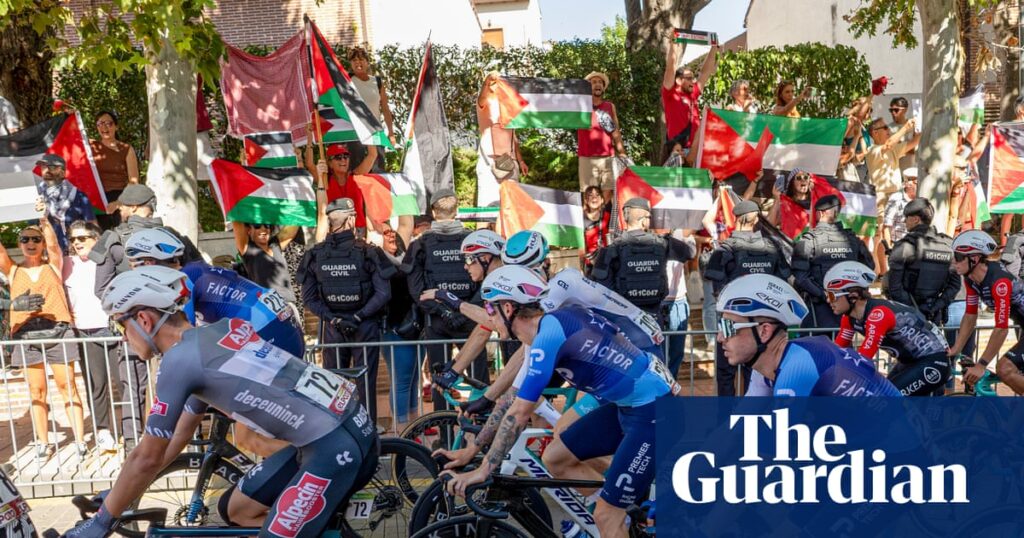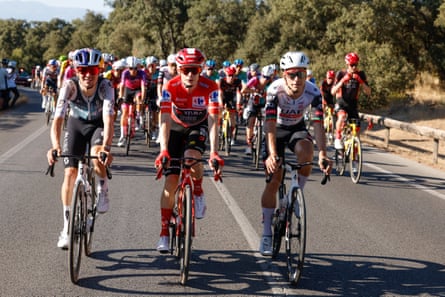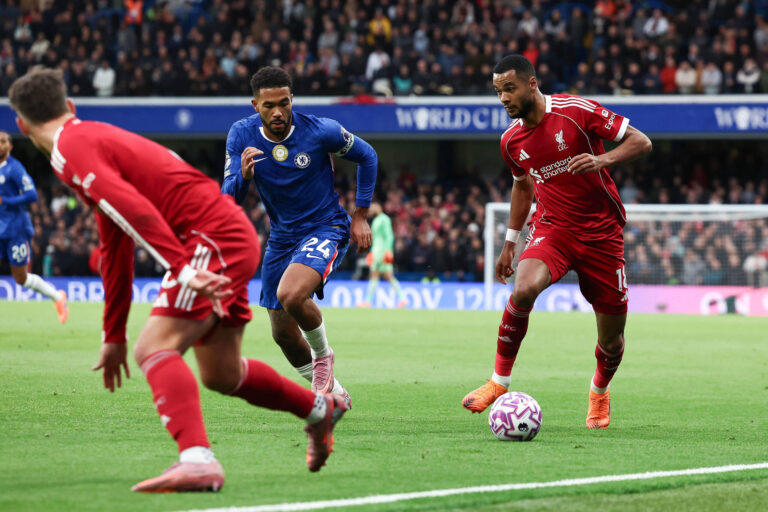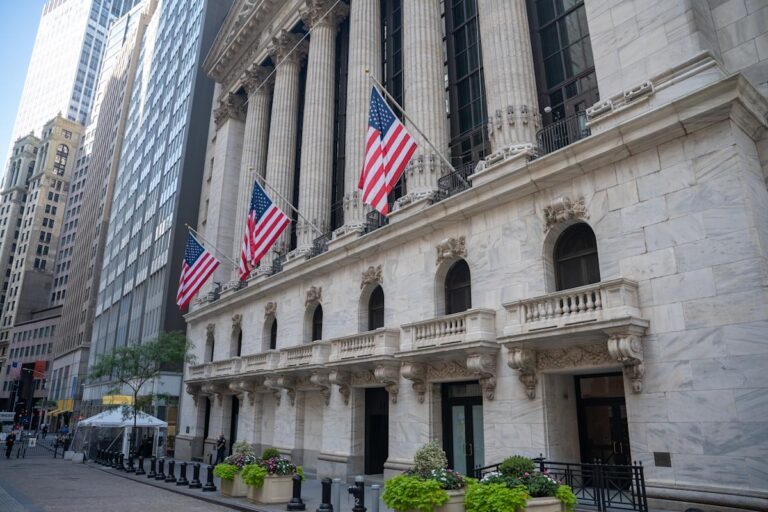
World Tour cycling teams may refuse to race against Israel-Premier Tech following the multiple protests during the Vuelta a España that exploded into street violence in central Madrid on Sunday.
Sources within rival teams have expressed their dismay to the Guardian at the refusal of the team to withdraw from the Vuelta and the lack of protection from the International Cycling Union (UCI) for its own commercial and sporting interests.

Occasional protests by disgruntled fisherman and farmers have long been part of the Tour and, for the most part, tolerated by the race organisers. However, in a sport now heavily reliant on nation-state sponsorship and branding, politicised mass protest, no matter how peaceful, will not be.
Unlike stadium-based sport, road racing – in need of public goodwill – remains uniquely vulnerable to protest and disruption on almost every kilometre of the route. Fully securing 175km of French, Italian or Spanish countryside is logistically impossible and prohibitively expensive. It also goes against the positioning of cycling as a free “people’s festival”.
Richard Plugge, Vingegaard’s team manager at Visma-Lease a Bike and one of the most influential World Tour bosses, said on Sunday evening: “These days, sport is used as a platform for addressing social issues. But the participants must be protected. They must not become victims of this social debate.
“That debate must be kept out of the athletes’ arena at all times. Athletes must be able to fight their battles unhindered in the stadium, or in our case, on the road. Otherwise, the unifying essence of sport will be jeopardised.”
The UCI declined to comment on its handling of the situation, instead praising race organisers’ professionalism in the face of the protests and criticising the Spanish government. In a statement, it noted its “total disapproval of and deep concern about the events that marked the 2025 edition of La Vuelta Ciclista a España”.
“We also regret the fact that the Spanish prime minister and his government have supported actions that could hinder the smooth running of a sporting competition and, in some cases, expressed their admiration for the demonstrators.”




